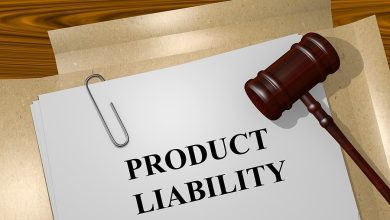
Landowners in Australia can sometimes find themselves facing an unexpected compulsory acquisition of their property by the government or authorised entities. Whether for infrastructure projects, road expansions or public utilities, compulsory acquisition is a legal process that allows authorities to take private land for public use. However, navigating this complex legal terrain can be extremely overwhelming. That’s where a compulsory acquisition lawyer comes in, ensuring landowners receive fair treatment and just compensation. This article will go over the facts of compulsory acquisition in Australia and how a compulsory acquisition lawyer can help.
What is Compulsory Acquisition?
Compulsory acquisition is the process by which the government or an authorised body acquires privately owned land, even if the owner doesn’t wish to sell. This is typically carried out under state and federal laws, such as the Land Acquisition and Compensation Act 1986 (Vic) or the Lands Acquisition Act 1989 (Cth), depending on the jurisdiction.
While governments argue that such acquisitions are necessary for public benefit, landowners often feel powerless against these decisions. A compulsory acquisition lawyer can help property owners understand their rights and negotiate the best possible outcome.
Understanding the Compensation Process
One of the most significant concerns for landowners facing compulsory acquisition is compensation. The law states that property owners must receive “just terms compensation”, which considers factors such as:
● Market value of the property
● Loss of business or income (if applicable)
● Legal and professional costs incurred
● Relocation expenses
● Additional damages for special value (e.g., unique attributes of the property)
However, determining fair compensation isn’t always straightforward. Government valuers may undervalue a property, offering less than what the owner believes is fair. This is where experienced compulsory acquisition lawyers can step in to challenge the valuation and advocate for the maximum entitlement.
Can You Challenge a Compulsory Acquisition?
While landowners generally can’t stop compulsory acquisition once it has been legally approved, they do have rights to challenge certain aspects of the process. These include:
· Challenging the necessity of the acquisition – In rare cases, if the acquisition isn’t genuinely for a public purpose, it may be possible to dispute its legality.
· Disputing compensation – If an owner believes the compensation offered is inadequate, they can negotiate or take legal action to seek a fairer amount.
· Seeking independent valuation – Property owners have the right to obtain an independent valuation to counter the government’s offer.
The Role of a Compulsory Acquisition Lawyer
Many landowners are unaware of their full compensation entitlements or how to dispute an unfavourable acquisition process. A dedicated compulsory acquisition lawyer can offer:
● Legal advice tailored to the specifics of your case
● Negotiation with acquiring authorities to seek better compensation
● Independent valuations to challenge unfair assessments
● Representation in court or tribunals, if necessary
How to Prepare if Your Property is at Risk
If you receive a notice of compulsory acquisition, taking immediate action is crucial. Early legal intervention can make a significant difference in the outcome of a compulsory acquisition case. Here’s what you should do:
· Do not accept the first offer – Governments often start with a lower offer, expecting negotiations.
· Engage a compulsory acquisition lawyer – They can assess your case and provide strategic legal advice.
· Get an independent valuation – This helps counter any undervaluation by government-appointed valuers.
· Document everything – Keep records of communications, property details, and any financial losses incurred.
Conclusion
Compulsory acquisition is a complex legal process that can leave landowners feeling powerless. However, with the right compulsory acquisition lawyer by your side, you can ensure you receive fair compensation and protect your rights.






